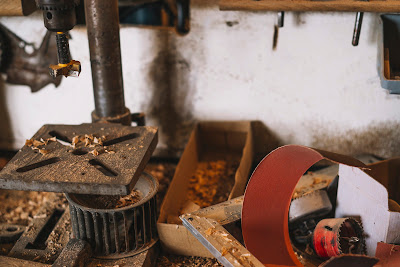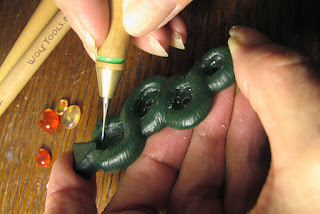Unveiling The Intricacies And Benefits Of The Lost Wax Casting Method
The
lost wax casting process is one of the oldest and most fascinating procedures
that is used for the creation of sculptures made of metal. Over the course of
more than five thousand years, this method has been used by artists and
crafters to produce complex designs and patterns that are impossible to
accomplish via the use of other methods. For millennia, it has been used,
mostly for the production of jewelry like as rings and pendants. The majority
of its applications were precision dental prosthesis and components;
nevertheless, a significant portion of those applications have been supplanted
by new technology. Additionally, it is still used for casting tiny pieces,
which need a high degree of precision in terms of size and form shortly after
the mold is removed. In this blog post, lost
wax casting company will explore the
advantages of the lost wax extraction method in more detail.
What
Are Some Of The Benefits Of Using The Lost Wax Extraction Method?
The
lost wax process, which is also referred to as investment casting, has a
multitude of benefits, which is why it is a technology that is often used in a
variety of sectors. Check out the following:
1. Permits
one to include in the final product
There
are several advantages, but one of the most important ones is that it enables
the finished product to have accuracy and precise workmanship. The use of this
technology makes it possible to create intricate and delicate patterns, which
may be difficult to do with conventional casting methods.
2. Maintaining
a tolerance of around ± 0.05 mm
In
a variety of sectors, particularly manufacturing and engineering, it is of
utmost importance to uphold a vital component of maintaining a very tight
tolerance of around ± 0.05 mm. This degree of accuracy guarantees that the
components and products in question are up to the required quality standards
and perform as they were designed to. The use of cutting-edge technology,
precision equipment, and expert operators is necessary in order to accomplish
such tight tolerances.
3. It
creates surfaces that are very smooth
As
a consequence of the casting process, the final items that are produced using
the lost wax technique often need a limited amount of post-processing. This is
because the casting process produces a smooth surface finish with low
porosity. The use of power equipment,
such as sanders, may also help to speed up the process and guarantee that the
surface is smooth over the whole area. When it comes to other materials, such
as plastic or glass, it is possible to obtain a perfect and mirror-like surface
by using specialist polishing chemicals and buffing equipment.
4. It
stops most of machining functions
This technology not only saves time and costs by
removing the need for lengthy machining operations, but it also opens up new
possibilities for the production of components that are customizable,
lightweight, and optimized for use in a variety of sectors.
Thus,
For the most part, the benefits of the lost wax extraction technique make it a
beneficial alternative for companies that are looking for accuracy, variety,
cost-effectiveness, and high-quality outcomes in their casting operations.
Conclusion
Among
all the lost wax extraction process is a favorite option for artists and
designers who are looking to bring their detailed thoughts to reality because
of the accuracy and delicacy in detail that it offers.
Casting in lost wax allows for an unprecedented level of accuracy and detail, which results in each piece being genuinely one of a kind. These lost wax casting company continue to push the limits of what is possible with lost wax casting, which means that the possibilities are almost limitless. From ornaments to artwork, the opportunities are unlimited with this time-honoured technology.




Comments
Post a Comment